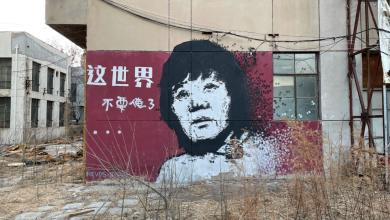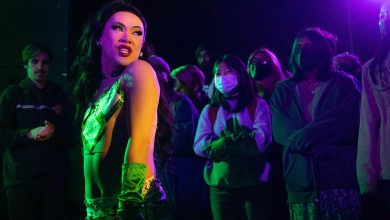From Nudity to a Nobel Peace Prize
 Can you imagine taking off your clothes in an attempt to end a civil war? That’s what a small group of women did, lead by life-long peace activist, Leymah Gbowee. Their protest not only helped bring peace to their nation, but also brought to power the first female head of state in Africa, Ellen Johnson Sirleaf.
Can you imagine taking off your clothes in an attempt to end a civil war? That’s what a small group of women did, lead by life-long peace activist, Leymah Gbowee. Their protest not only helped bring peace to their nation, but also brought to power the first female head of state in Africa, Ellen Johnson Sirleaf.
After 17 long years, the first Liberian civil war ended in 1997 thanks to the creation of a new government. From 1999 until 2003, Liberian rebel groups in Guinea attacked this new government just two years after the previous one ended. As a result of the war, thousands of people were displaced from their homes, and countless more were killed. Atrocities, especially the widespread death of children and frequent rapes, were common during the war. Having already seen the horror of one long civil war, Gbowee threw herself into searching for a peaceful solution for her country.
Gbowee worked in trauma healing throughout her entire life and later began to see the need to resolve conflicts with peace. She used her life-long study to lead a women’s group, the Liberian Women’s Initiative, and then later WIPNET (Women In Peacebuilding Network.) These organizations brought women together to learn how to deal with conflict, but soon became forces for activism. Gbowee helped lead women in nonviolent demonstrations and sit-ins protesting the war. In one particular move, many of these women participated in an attention grabbing sex strike that lasted for a couple of years.
These women decided to take their demonstrations a step further. They gathered together on a soccer field where the president Charles Taylor had to pass twice a day to get to Capitol Hill while wearing white shirts with the WIPNET logo, symbolizing peace. This finally caught Taylor’s eye and he allowed them and their leader, Gbowee, a hearing.
A few months later, Gbowee and a delegation of women decided to gather at the hotel where the peace talks were occurring. They sat outside throughout June and into July to encourage the progress of the peace talks. However, this seemed to have little effect. Gbowee then led the delegation into the hotel at which point the women sat down and linked arms, effectively trapping the negotiators until they formed a peace agreement. The women then threatened to strip off their clothing. When security came to arrest her, Gbowee said in an interview with Jon Stewart, “I will make it easier for you. [to the guards] I’ll strip naked, so that when you take me to prison, it will be easier. So by the time I had started taking my clothes off, maybe they were afraid of what they would see, [but] they all ran away.” Their tactics, though shocking, proved effective. Just a few weeks later, the Accra Comprehensive Peace Agreement was signed, bringing the Liberian war officially to an end. Soon after the end of the war, Sirleaf was elected president of Liberia in the country’s 2005 elections, striking another victory for the women’s rights activists.
The intensity that fueled the actions of these women demanded extreme measures for an extreme problem. The death of their children and the rape of their daughters, sisters, and mothers were not going to end easily. They did not know what it might take to bring peace to their country, but they were willing to fight in their own way to make it happen.
Let me leave you with a question: Would you have the nerve to strip for your country’s peace?
Leymah Gbowee was one of this year’s winners of the Nobel Peace prize. She is the author of Mighty Be Our Powers: How Sisterhood, Prayer, and Sex Changed a Nation at War, and she continues to work as an activist in Women Peace and Security Network Africa.
Photo credit: Jon Styer/Eastern Mennonite University




